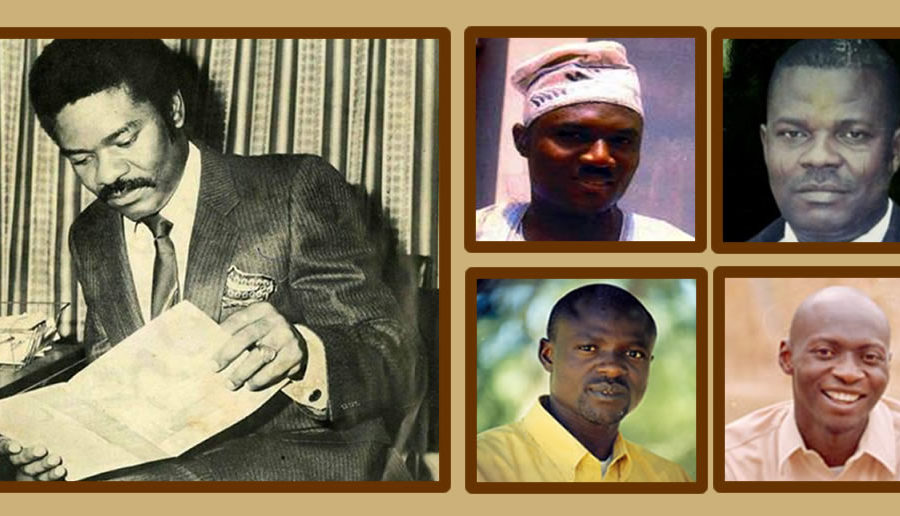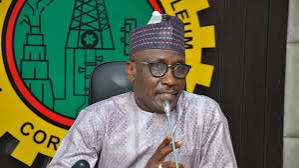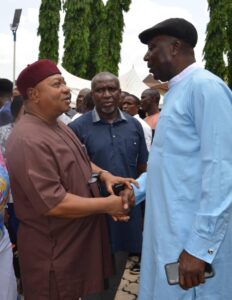THROWBACK: Nigerian journalists who lost their lives seeking the truth
Nigeria is one of the countries where murderers of journalists get away without the authorities ever bringing them to justice. Nigeria was ranked 13 out of 14 countries in the 2018 Global Impunity Index released by the Committee to Protect Journalists (CPJ), making it the sixth time that Nigeria is featured on the index since 2008. For more than two decades, murderers of Nigerian journalists have still not been brought to justice. Here are some of the journalists murdered with impunity:
Dele Giwa
It has been over 33 years since Giwa, who was the pioneer editor-in-chief of Newswatch, was assassinated. Giwa was reportedly killed after he received a parcel bomb which detonated at his residence in Ikeja, Lagos state. The journalist who died at 39, was known for exposing corrupt and illegal dealings of the government and this earned him recognition.
The assassination occurred two days after he had been questioned by officials of the State Security Service (SSS), now Department of Security Services (DSS). The Newswatch editor had just written an article on second-tier foreign exchange market (SFEM), a Central Bank of Nigeria (CBN) policy introduced at the time. Under the SFEM policy, the determination of the naira exchange rate and allocation of foreign exchange were based on market forces. In the piece, Giwa said if SFEM failed, the people would stone “their leaders in the streets”.
Ajibola Kunle Togun, the then deputy director of the SSS, later met with Giwa and said he did not find anything offensive in the story. But in a different turn of events, Ray Ekpu, a colleague of Giwa, said Togun accused the journalist of planning to publish the “other side” of the story on the circumstances that led to the removal of Ebitu Ukiwe as chief of staff to Ibrahim Babangida, former military head of state.
Giwa was also accused of plotting with the Nigeria Labour Congress (NLC), the Academic Staff Union of Universities (ASUU) and other groups to carry out a “socialist revolution”. Around the same time, Giwa was quizzed by Halilu Akilu of the directorate of military intelligence (DMI) over an allegation that he had been heard speaking to some people about arms importation. He appeared at the SSS headquarters on the matter on October 16, 1986 — two days to his assassination.
On October 18, Akilu called Giwa’s home and asked his wife Funmi for directions as he wanted to stop by on his way to Kano. On the day of the assassination, the DMI official reportedly told Giwa over the telephone that the matter had been resolved after the journalist inquired about his frequent calls. Not long after the call, a package was delivered to Giwa which severely wounded him.
Giwa was taken to the hospital but later died from the wounds he sustained from the blast. He would have been 73years of age this year. Although, Mohammed Buba Marwa, a former military governor of Lagos state, was accused of being the courier of the bomb, no one has been convicted for Giwa’s murder.
Tunde Oladepo
Tunde Oladepo, a senior correspondent with The Guardian, was murdered by five masked gunmen, who entered his home early in the morning and shot him to death in front of his wife and children on February 26, 1998. Nothing was removed from Oladepo’s residence, ruling out robbery as a motive. Oladepo, who had been the bureau chief of The Guardian’s state office in Ogun, was covering political affairs. Co-workers believe he was murdered because of his work as a journalist.
Okezie Amaruben
Okezie Amaruben, the publisher of Newsservice Magazine, was shot and killed by a police officer in Enugu State on September 2, 1998. Amaruben was checking on a printing job being done for him in a shop when police officers verbally and physically attacked him. One placed a pistol to his forehead and hit him with the gun after he had identified himself as a journalist.
People at the scene told the police officers that Amaruben was not the person they were looking for. He was being forced into a police vehicle when the officer fired his gun and the bullet pierced Amaruben’s skull. Authorities confirmed that the officer who shot Amaruben was arrested shortly after the murder.
Fidelis Ikwuebe
Fidelis Ikwuebe was a freelance journalist who contributed to The Guardian. He was abducted and murdered while covering violent clashes between the Aguleri and Umuleri communities in Anambra State on April 18, 1999. It was not clear who was responsible for Ikwuebe’s death. It was alleged that the state military administration at that time was very sensitive about news coverage of the fighting, which left several hundred people dead, and the environment was a dangerous one for journalists.
Sam Nimfa-Jan
Nimfa-Jan, a journalist with Jos based media, Magazine Details, was killed in Kafanchan, Kaduna State, during an ethnic clash on May 27, 1999. He was on assignment covering riots between the Hausa Fulani and Zangon-Kataf groups that broke out over the installation of a new emir (traditional local leader) in the Jema’a area. Nigerian journalists, quoting local residents, said that Nimfa-Jan’s corpse was found with arrows protruding from its back.
Bayo Ohu
In a similar occurrence, Bayo Ohu, an assistant news editor of The Guardian, was shot by unidentified assailants as he answered a knock at the front door of his house in Lagos on September 20, 2009. The six assailants took Bayo’s laptop and cell phone, according to the journalist’s relatives and local news reports. He was allegedly killed for his political reporting, especially his investigation into alleged fraud in Customs. In May 2012, the court freed three suspects charged with Ohu’s murder on the ground that the prosecution had failed to prove the case.
Nathan S. Dabak and Sunday Gyang Bwede
Deputy Editor Nathan Dabak, and reporter Sunday Gyang Bwede, who were journalists for The Light Bearer, the monthly newspaper of the Church of Christ in Nigeria, were on their way to an assignment when they were attacked by a mob in Jos, Plateau state on April 24, 2010.
They had chartered a motorcycle to travel to a scheduled interview with a member of the Federal House of Representative, Bitrus Kaze, concerning ongoing outbreaks of deadly violence between Muslims and Christians in the area. Dabak and Bwede were stabbed by Muslim youths reacting to the discovery of a slain Muslim individual near a church.




